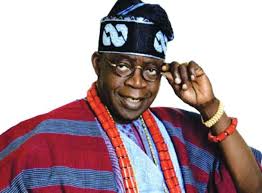
President Bola Tinubu’s economic policies have been shaped by the need to drive growth, investment, and human capital development in Nigeria. His administration has implemented various reforms aimed at promoting economic stability, attracting foreign investment, and improving the lives of Nigerians.
Tinubu’s economic policies share similarities with market-led growth strategies that focus on fiscal reforms, investment promotion, and infrastructure development. The removal of fuel subsidies, for instance, has reduced government expenditure and redirected funds to critical sectors like healthcare, education, and infrastructure. This move has also attracted foreign investment, with over $50.8 billion worth of Memorandums of Understanding signed.
In addition, Tinubu’s policies emphasize education and human capital development, with initiatives like the Nigerian Education Loan Fund (NELFUND) providing financial assistance to students. The administration has also launched an $800 million cash transfer program to support vulnerable Nigerians affected by economic reforms.
Despite these efforts, Tinubu’s economic policies have faced challenges. The removal of fuel subsidies led to increased fuel prices, transportation costs, and living expenses, affecting the cost of living for many Nigerians. Insecurity remains a significant challenge, with persistent threats from insurgency, banditry, and kidnapping requiring sustained efforts to address underlying causes like poverty and unemployment.
Corruption is another challenge that Tinubu’s administration continues to grapple with, with critics arguing for deeper systemic changes to ensure transparency and accountability in governance.
In terms of achievements, Nigeria’s economy experienced its strongest growth in a decade, expanding by 4.6% year-on-year in Q4 2024. The debt service-to-revenue ratio decreased from 97% to 68%, reflecting improved fiscal management. Over $5 billion in Final Investment Decisions were made in the oil and gas sector, making Nigeria the most attractive destination for such investments in Africa in 2024.
Overall, Tinubu’s economic policies aim to promote growth, investment, and human capital development while addressing fiscal challenges and insecurity. While achievements are notable, challenges persist, requiring continued efforts to improve the lives of Nigerians and drive sustainable economic growth.




